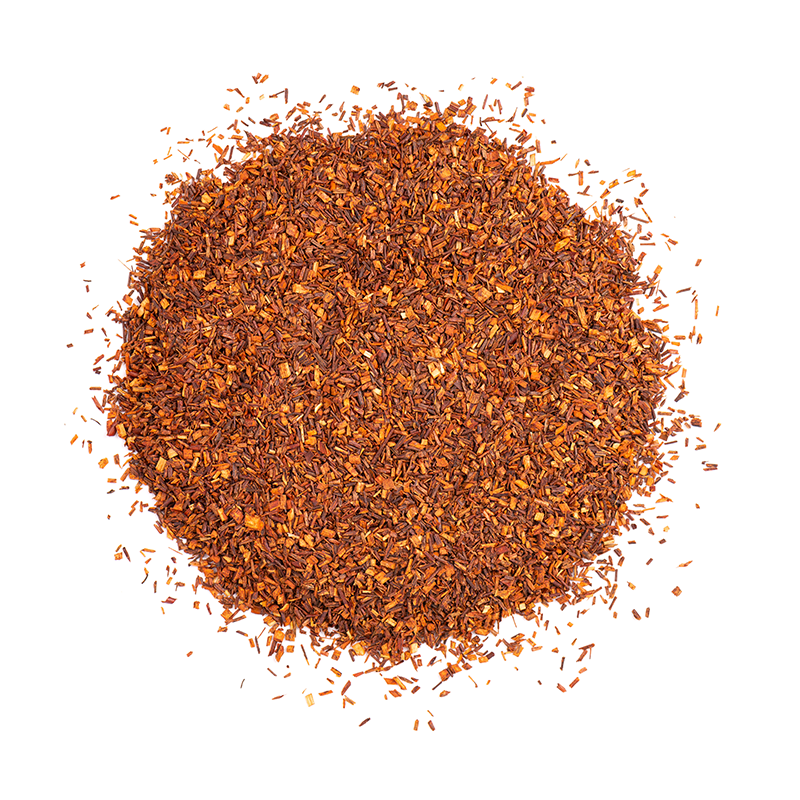Enjoy the Sweet and Earthy Flavor of Caffeine-Free Red Rooibos
Red Rooibos (Aspalathus linearisv), made from the fermented leaves of the Aspalathus linearis shrub, is a great caffeine-free alternative to traditional black and green teas. It has a sweet, delicate, and earthy flavor, making it a popular choice for those seeking a naturally caffeine-free beverage.
Rooibos is versatile in use, often enjoyed on its own or blended with other flavors for a unique tea experience.
More about Red Rooibos
Red Rooibos, derived from the South African plant Aspalathus linearis, is a highly treasured ingredient in both apothecaries and modern wellness circles. Its appeal transcends beyond its sweet, earthy, and slightly nutty flavor, drawing acclaim for its rich blend of health-promoting polyphenols.
The tea is particularly valued for its unique active ingredients like aspalathin and nothofagin, alongside a spectrum of flavonoids and phenolic acids. These compounds confer Red Rooibos with potent antioxidant properties, contributing to its growing popularity in the global health and wellness sector. Known for its caffeine-free nature, Red Rooibos is not just a refreshing beverage but also a natural ally against oxidative stress and various health ailments.
In the realm of traditional and modern herbal practices, Red Rooibos is celebrated for its versatile applications. It's not only enjoyed as a soothing herbal tea but also increasingly utilized in the food industry for its unique flavor and antioxidant properties. Red Rooibos originates from the Cape Floristic Region of South Africa, and due it's benefits, continues to captivate those who use it in their herbal practices.
Know Your Ingredients: Red Rooibos
| Latin Name | Aspalathus linearis |
| Active Ingredients | Aspalathin, nothofagin, Isoorientin, Orientin, Rutin |
| Classification Secondary Metabolite | Flavonoids (isoorientin, orientin, and rutin), Phenolic acids |
| Flavor | Sweet, earthy, slightly nutty |
| Common Use | Herbal tea, health beverages, and in the food industry for its antioxidant properties and unique flavor |
| Origin | Indigenous to South Africa's Cape Floristic Region |


